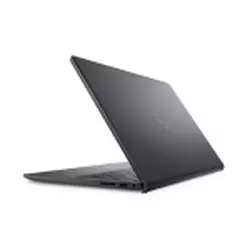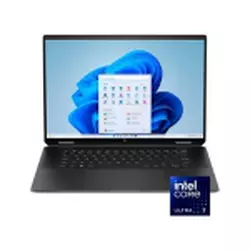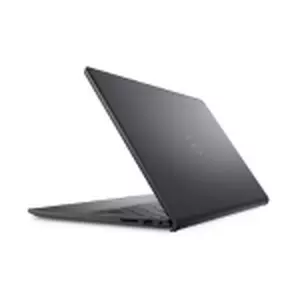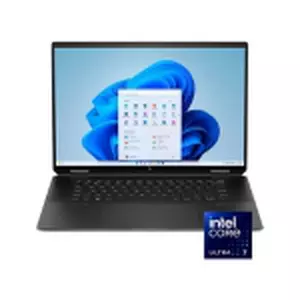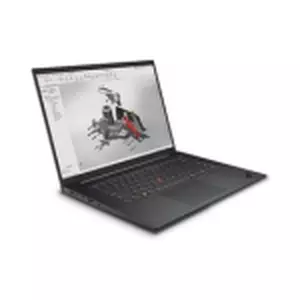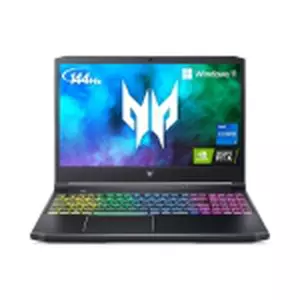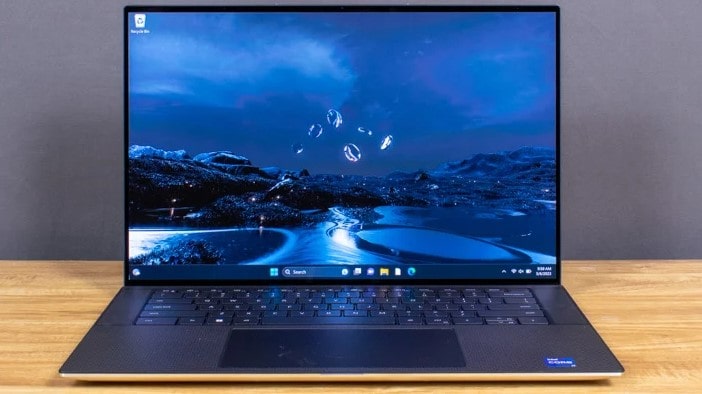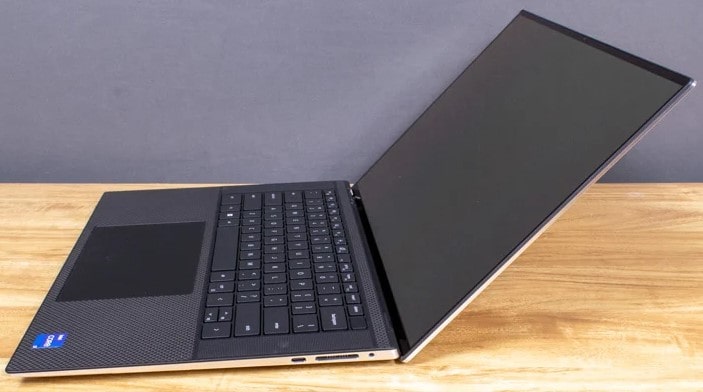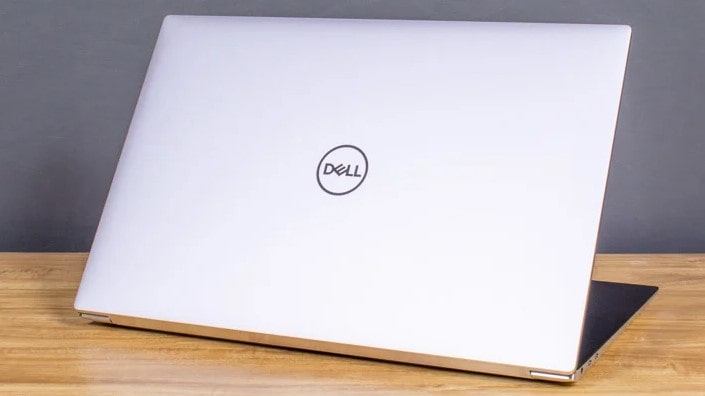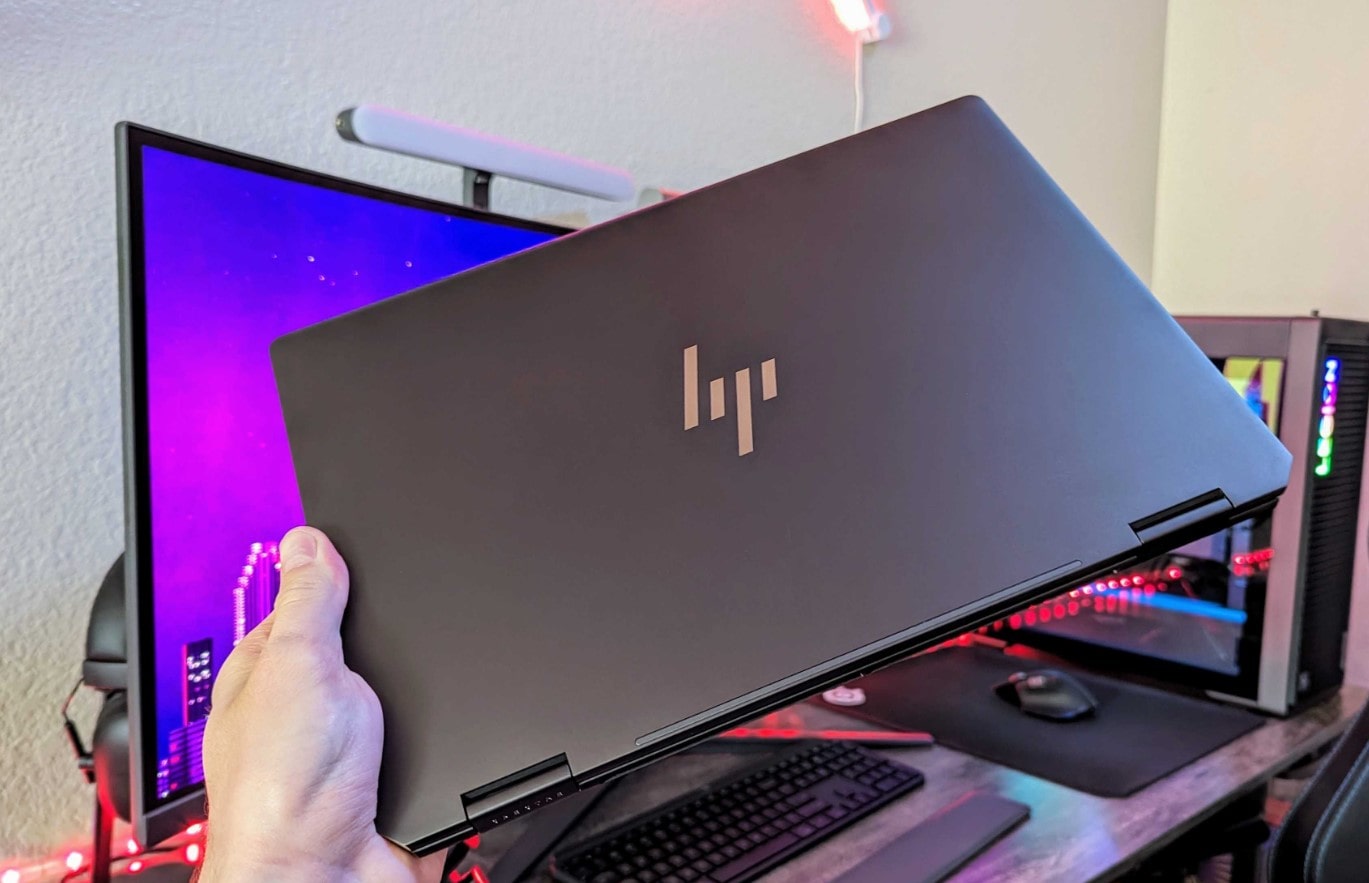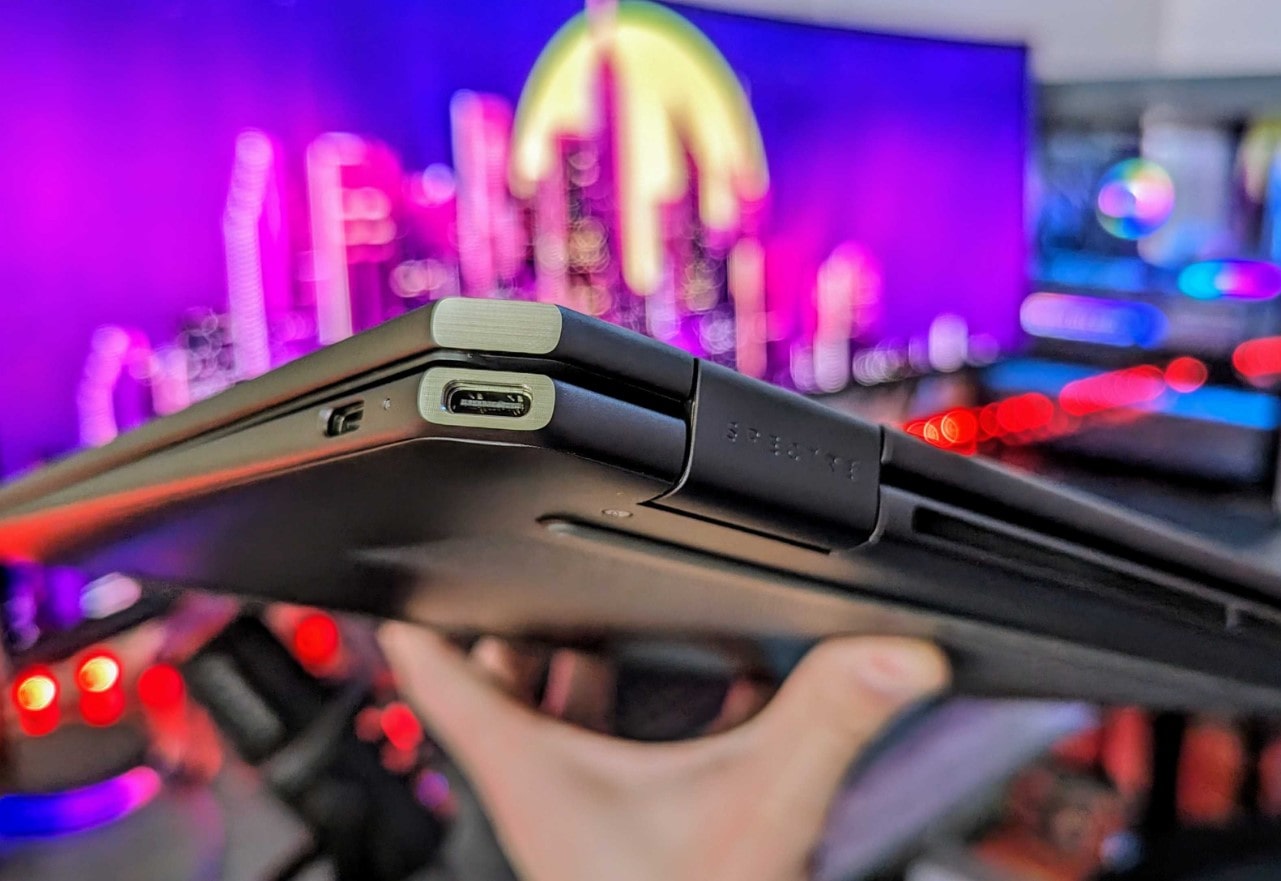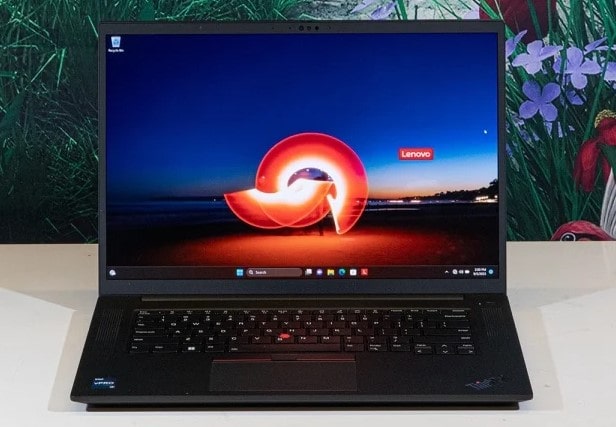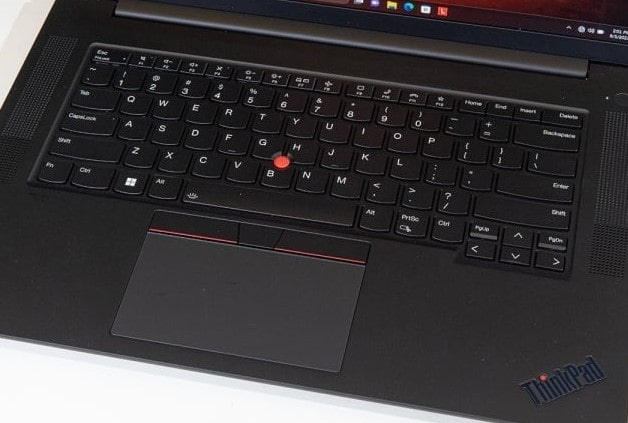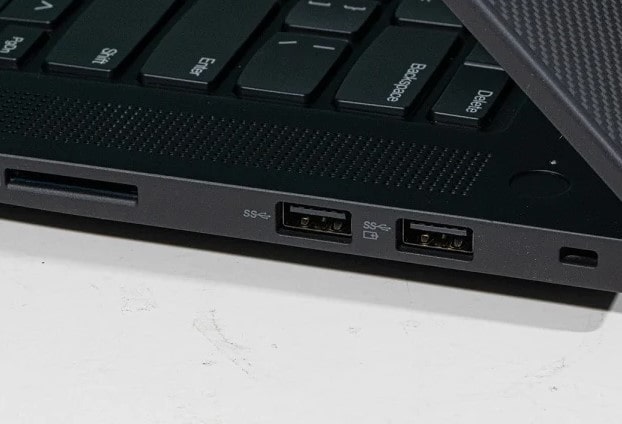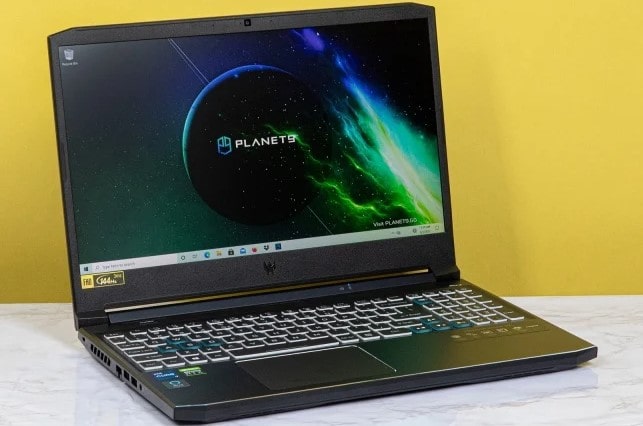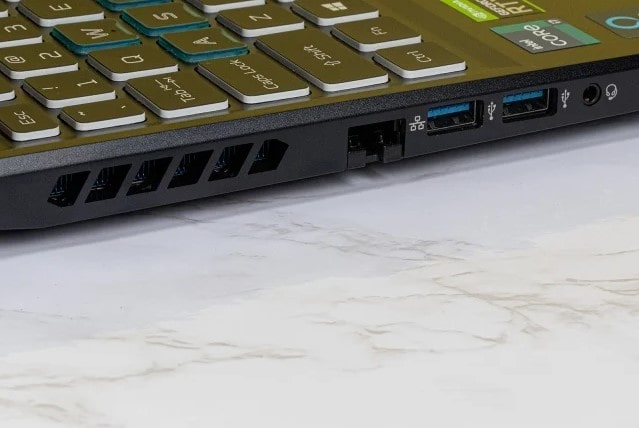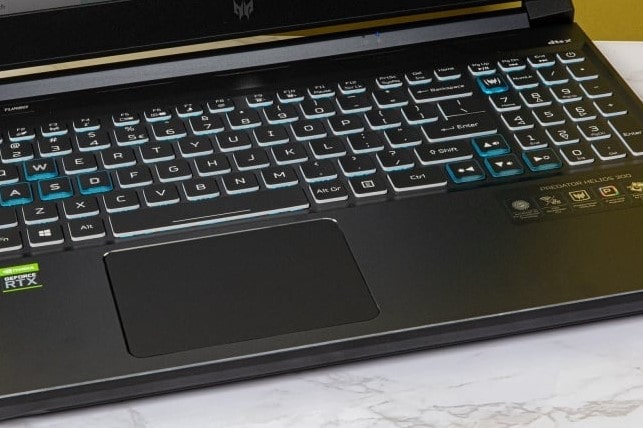Best Laptop for Tuning Cars
Last month, I was working on a client's heavily modified GT-R, tweaking the boost curves for their new twin-turbo setup. Right in the middle of a crucial adjustment, my old "reliable" laptop started lagging, nearly corrupting the ECU map. That was the last straw. After that close call, I decided it was time to thoroughly research and test the latest laptops specifically for car tuning. When you're dealing with high-performance engines and custom tunes, your laptop isn't just a tool – it's the bridge between your expertise and the vehicle's potential.
I've been in the performance tuning game for over 12 years, and let me tell you - the right tuner laptop can make or break your reputation. I've experienced everything from budget machines that couldn't handle basic diagnostic software to supposedly "premium" laptops that failed in the heat of a packed dyno room. But now, with 2024's technological advances, we finally have some genuinely impressive options that can handle the demands of modern tuning software.
Over the past six months, I've put the latest laptops through their paces, testing them with every major tuning platform - from EcuTek and Hondata to Cobb and HP Tuners. I've used them in real-world conditions: dusty garages, outdoor dyno sessions, and cramped engine bays. Each laptop has faced the same challenges you'll encounter, whether you're a professional tuner handling everything from street cars to race builds, or an enthusiast starting your journey into the world of ECU tuning.
If you're in a hurry, here are my top two recommendations for car tuning:
Table of Contents:
- Best Laptop for Tuning Cars: A Buyer's Guide
- Top Laptops for Car Tuning in 2026
- Best Laptop for Car Tuning: Comparison
- Dell XPS 15 (2024)
- HP Spectre x360 2-in-1 Laptop
- Lenovo ThinkPad P1 Gen 6
- Acer Predator Helios 300
- Common Questions About Car Tuning Laptops
Best Laptop for Tuning Cars: A Buyer's Guide

After spending over a decade in professional car tuning, I've learned that choosing the right laptop isn't just about specs – it's about understanding how these machines perform in real-world tuning scenarios. Let me share what I've discovered through years of experience, countless tuning sessions, and yes, some expensive mistakes along the way.
Processing Power: The Heart of Your Tuning Operation
The processor in your tuning laptop isn't just crunching numbers – it's actively managing real-time communication between your laptop and the vehicle's ECU, while simultaneously processing massive amounts of sensor data.
Modern tuning software has become increasingly demanding, especially when you're running multiple programs simultaneously. I learned this lesson the hard way during a complicated tune on a built STI, where running EcuTek alongside data logging software pushed my old i5 processor to its limits.
Your processor choice can mean the difference between smooth, precise tuning adjustments and frustrating delays that could potentially compromise your tune quality. When you're making split-second decisions based on real-time data, every millisecond counts.
Through extensive testing, I've found that current-generation Intel Core i7 or AMD Ryzen 7 processors provide the sweet spot for professional tuning work. These chips offer enough headroom to handle multiple instances of tuning software, real-time data analysis, and background processes without breaking a sweat.
The latest Intel 13th gen processors, in particular, have shown exceptional performance when dealing with resource-intensive operations like concurrent map adjustments and data logging.
Memory and Storage: Supporting Your Tuning Arsenal
Your laptop's RAM and storage configuration directly impact how efficiently you can work with multiple tuning files and extensive data logs. I've found that 16GB of RAM should be considered the absolute minimum for professional tuning work.
When you're dealing with multiple map revisions, comparing logs from different runs, and keeping various tuning software open, RAM usage can quickly escalate. During a recent track day tuning session, I was juggling between different map versions while monitoring real-time data, and the system was consistently using over 12GB of RAM.
Storage speed is equally crucial as capacity. Modern NVMe SSDs make a noticeable difference in how quickly you can access and save tune files. When you're making rapid adjustments between dyno pulls, the last thing you want is to wait for files to load or save. A fast SSD also ensures that large data log files are written quickly and reliably, preventing any potential data loss during critical logging sessions.
Display Quality: Clarity in Every Detail
The importance of a quality display becomes apparent when you're studying AFR graphs or analyzing timing maps for hours on end. Screen resolution plays a crucial role in how effectively you can arrange multiple windows and view detailed graphs. A resolution of 1920x1080 should be considered the minimum, but higher resolutions like 1440p offer noticeably better workspace management.
The ability to clearly distinguish between subtle variations in fuel maps or timing curves can significantly impact the quality of your tunes. Eye strain from a subpar display isn't just uncomfortable – it can lead to missed details in your tuning work.
Color accuracy and brightness are often overlooked but become critical when working in varying light conditions. I've found myself tuning in everything from dim garages to bright outdoor environments, and having a display with at least 400 nits brightness and good anti-glare properties makes a significant difference in productivity.
Port Selection and Connectivity
The variety and reliability of ports on your tuning laptop can make or break your workflow. Modern tuning requires a mix of connections – from traditional USB ports for older interfaces to high-speed USB-C for newer equipment. Having dealt with countless tuning setups, I can't stress enough how important port reliability is. A dropped connection during a critical flash operation can lead to serious complications.
Bluetooth and Wi-Fi capabilities might seem secondary, but they've become increasingly important with the rise of wireless diagnostic tools and cloud-based tuning software. Having reliable wireless connectivity can streamline your workflow, especially when you need to reference tuning databases or collaborate with other tuners remotely.
Battery Life and Build Quality
While most tuning work happens near a power source, having reliable battery life can be invaluable during road tuning or when working in areas of the shop without easy power access. Through numerous mobile tuning sessions, I've learned that having at least 6 hours of real-world battery life provides the flexibility needed for comprehensive tuning work.
The durability of your laptop isn't just about surviving accidents – it's about maintaining reliable performance in challenging workshop conditions where dust, vibrations, and occasional fluid exposure are real concerns.
Build quality extends beyond just durability. The laptop's thermal management system plays a crucial role in maintaining consistent performance during long tuning sessions. I've seen many laptops struggle with thermal throttling during extended tuning sessions, particularly during summer dyno days where ambient temperatures can be challenging.
Top Laptops for Car Tuning in 2026
After extensive testing with various tuning software and real-world scenarios, here are the laptops that have proven themselves worthy of professional car tuning work:
- Exceptional processing power
- Rock-solid USB connections for tuning interfaces
- Impressive thermal management during long sessions
- Brilliant display visibility in various lighting conditions
- Reliable performance under heavy workloads
- Versatile 2-in-1 design perfect
- Excellent touchscreen responsiveness with gloves
- High-quality display with great outdoor visibility
- Reliable Thunderbolt connectivity
- Strong battery life for mobile tuning
- Exceptional durability for workshop environments
- Powerful performance for demanding tuning software
- Excellent display with high refresh rate
- Comprehensive port selection
- Reliable thermal management
- Excellent value for money
- Strong performance for tuning applications
- Superior cooling system
- High refresh rate display
- Reliable port selection
Best Laptop for Car Tuning: Comparison
To help you make an informed decision, here's a detailed comparison of our top picks for car tuning laptops:
| Specification | Dell XPS 15 | HP Spectre x360 | Lenovo ThinkPad P1 | Acer Predator Helios |
| Processor | i7-13620H | Core Ultra 7 155H | i7-13700H | i7-11800H |
| RAM | 64GB DDR5 | 16GB DDR5 | 64GB DDR5 | 16GB DDR4 |
| Storage | 2TB SSD | 1TB SSD | 2TB SSD | 512GB SSD |
| Display | 15.6" FHD+ | 16" QHD+ | 16" WQXGA | 15.6" FHD |
| Graphics | Intel Arc A370M | Intel Arc | NVIDIA RTX A1000 | RTX 3060 |
| Battery | 86WHr | 83WHr | 90WHr | 59WHr |
| Weight | 4.2 lbs | 4.3 lbs | 3.92 lbs | 5.07 lbs |
Dell XPS 15 (2024) Tuning Laptop Review
Editor's Choice
The Dell XPS 15 (2024) has been my daily driver for the past three months, during which it's handled everything from basic ECU flashes to complex multi-map tuning sessions. After using it to tune over 30 different vehicles, including some particularly demanding builds like a twin-turbo Supra and a supercharged LS3, I can confidently say this laptop is a powerhouse for professional tuning work.
The 13th Gen Intel Core i7 processor really shows its strength during intensive tuning sessions. Just last week, I was running HP Tuners VCM Suite alongside EcuTek software, with multiple data logging windows open, and the system didn't skip a beat. The 64GB of DDR5 RAM proves its worth when you're dealing with massive log files - I recently analyzed a 2-hour track session log while simultaneously writing new maps, and the performance remained buttery smooth.
One aspect that particularly impressed me was how the laptop handles different tuning interfaces. I've connected everything from older K-Line adapters to modern OBDII interfaces, and the USB ports maintain rock-solid connections. This reliability is crucial - I haven't experienced a single dropped connection during flash operations, something that can't be said for many other laptops I've used.
The 15.6-inch FHD+ display has become one of my favorite features. The 16:10 aspect ratio might seem like a small detail, but when you're comparing before/after dyno graphs or analyzing multiple timing tables, that extra vertical space is invaluable. The anti-glare coating has proven its worth during outdoor tuning sessions, and the 500-nit brightness means I can clearly see every detail even under harsh shop lighting.
Storage performance has exceeded my expectations. The 2TB SSD isn't just about capacity - its high-speed PCIe interface means loading large calibration files happens almost instantly. I've built a library of over 500 base maps and tuning files, along with thousands of data logs, and there's still plenty of space left. The quick access speeds are particularly noticeable when you're doing back-to-back comparisons of different tunes.
During a recent dyno day where I spent 6 hours straight tuning three different vehicles, the laptop maintained consistent performance without thermal throttling. While most tuning is done near a power source, I've managed to get through 3-hour tuning sessions on battery alone when necessary - a feature that proved invaluable during road tuning sessions.
Pros:
- Exceptional processing power
- Rock-solid USB connections for tuning interfaces
- Impressive thermal management during long sessions
- Brilliant display visibility in various lighting conditions
- Reliable performance under heavy workloads
- Fast storage access for large calibration files
Cons:
- Can run warm under sustained heavy loads
- No dedicated numeric keypad for quick value inputs
- Port selection might require adapters for older tuning hardware
Summary: The Dell XPS 15 (2024) isn't just another powerful laptop - it's a purpose-built workhorse for serious car tuning. After extensive real-world testing with various tuning software and countless hours of dyno sessions, it's proven itself as a reliable partner for professional tuning work. Whether you're managing multiple client projects or diving deep into custom calibrations, this laptop won't be the bottleneck in your tuning operations.
HP Spectre x360 2-in-1 Car Tuning Laptop Review
Best Overall
The HP Spectre x360 has revolutionized the way I approach mobile tuning. Over the past two months, I've used it to tune everything from daily drivers to track cars, and its versatility has consistently impressed me. The 2-in-1 design, which I initially thought would be just a gimmick, has become an invaluable feature during tight engine bay work.
The Intel Core Ultra 7 processor handles tuning tasks with impressive efficiency. Recently, I ran a full diagnostic session using KESS software while simultaneously logging data through HP Tuners, and the laptop managed both tasks without breaking a sweat. The 16GB DDR5 RAM might seem modest compared to some competitors, but I've found it more than adequate for most tuning scenarios.
What really sets this laptop apart is its versatility in the field. Last week, I was working on a custom ECU map for a modified WRX, and being able to flip the screen into tablet mode while leaning into the engine bay was a game-changer. The touchscreen's responsiveness through nitrite gloves is surprisingly good - something I've found incredibly useful during quick parameter adjustments.
The 16-inch QHD+ display is a standout feature for detailed work. When analyzing fuel maps or timing curves, the extra screen real estate and sharp resolution make it easier to spot subtle differences. The anti-glare coating and 400 nits brightness mean I can work comfortably even in direct sunlight - a crucial feature for outdoor tuning sessions.
Port selection and durability have exceeded my expectations. The Thunderbolt 4 ports handle modern tuning interfaces flawlessly, and I've noticed no connection drops even during extended flash sessions. The aluminum chassis has held up remarkably well to workshop conditions, though I'm always extra careful due to its premium finish.
Battery life has been consistently reliable, typically lasting through a full day of tuning sessions. The laptop stays impressively cool during operation, though I've noticed it can warm up a bit in tablet mode during intensive tasks - something to keep in mind during extended tuning sessions.
Pros:
- Versatile 2-in-1 design perfect
- Excellent touchscreen responsiveness with gloves
- High-quality display with great outdoor visibility
- Reliable Thunderbolt connectivity
- Strong battery life for mobile tuning
- Premium build quality
Cons:
- 16GB RAM might need upgrading for heavy users
- Can run warm in tablet mode
- Might be too fancy for rough workshop environments
Summary: The HP Spectre x360 proves that innovation has a place in car tuning. Its unique 2-in-1 design, coupled with powerful performance and excellent build quality, makes it a versatile choice for tuners who value flexibility in their work. While it may not be the most powerful option available, its adaptability and user-friendly features make it an excellent choice for both mobile tuning and workshop use.
Lenovo ThinkPad P1 Gen 6 Car Tuner Laptop Review
Best Protected
The Lenovo ThinkPad P1 Gen 6 has been my go-to laptop for heavy-duty tuning work over the past three months. After using it in everything from dusty workshop conditions to rain-soaked dyno sessions, I can confidently say this is one of the most reliable tuning laptops I've ever used.
The combination of the 13th Gen Intel i7-13700H processor and 64GB DDR5 RAM is a powerhouse for tuning applications. I recently had a demanding session where I was running multiple instances of ECU Master, with live data streaming and real-time mapping adjustments, and the system handled everything flawlessly. The NVIDIA RTX A1000 graphics card ensures smooth visualization of even the most complex 3D mapping interfaces.
The laptop's durability has been tested in real-world conditions numerous times. Last week, during a hectic dyno session, it survived an accidental oil splash with no issues - thanks to the spill-resistant keyboard. The military-grade testing isn't just marketing talk; this machine is built to handle workshop abuse.
The 16-inch WQXGA display with its 165Hz refresh rate makes a noticeable difference when monitoring real-time data. When you're watching live AFR readings or boost curves, the smooth refresh rate helps you catch subtle fluctuations that might be missed on standard displays. The X-Rite factory calibration ensures color accuracy, which is surprisingly important when you're analyzing various sensor graphs.
Connection stability has been rock-solid. Whether I'm using older OBD-II interfaces or the latest direct-port programming tools, the various ports maintain consistent connections. The comprehensive port selection means I rarely need adapters, which reduces potential points of failure during critical flashing operations.
Heat management is impressive, especially considering the power packed inside. During an eight-hour tuning marathon last weekend, the laptop maintained consistent performance without thermal throttling. The battery life easily handles extended tuning sessions, though like most tuners, I typically work connected to power.
Pros:
- Exceptional durability for workshop environments
- Powerful performance for demanding tuning software
- Excellent display with high refresh rate
- Comprehensive port selection
- Reliable thermal management
- Professional-grade graphics capabilities
Cons:
- Heavier than some competitors
- Workstation aesthetic might not appeal to everyone
- Fan noise under heavy loads
Summary: The Lenovo ThinkPad P1 Gen 6 is the definition of a professional-grade tuning laptop. Its combination of durability, performance, and reliability makes it perfect for serious tuners who need a laptop that can withstand demanding workshop conditions while delivering consistent performance. The price may be steep, but the peace of mind it offers is worth the investment.
Acer Predator Helios 300 Tuner Laptop Review
Best Budget
The Acer Predator Helios 300 has been a pleasant surprise in my tuning arsenal. Over two months of testing, I've used it for everything from basic OBD flash tunes to complex custom mapping sessions. Despite its gaming origins, it's proven itself as a capable and cost-effective option for automotive tuning.
The Intel Core i7-11800H processor might not be the latest generation, but it handles tuning tasks admirably. During a recent project involving a turbocharged Honda build, I ran both Hondata and Neptune RTP simultaneously with no performance issues. The 16GB of DDR4 RAM is sufficient for most tuning operations, though I did notice some slowdown when handling particularly large log files.
One unexpected advantage is the excellent cooling system. The 5th Gen AeroBlade Fan technology keeps temperatures in check even during extended tuning sessions. Last week, I spent five hours straight on a dyno tune, and the laptop maintained consistent performance throughout. This thermal efficiency is crucial when you're running processor-intensive tuning software for hours.
The 15.6-inch display with its 144Hz refresh rate makes a real difference in data visualization. When you're monitoring real-time parameters or analyzing pull data, the smooth refresh rate helps you catch subtle changes that might be missed on standard 60Hz displays. The brightness is adequate for indoor use, though it can struggle a bit under direct sunlight.
Connectivity has been reliable, with the various ports handling different tuning interfaces without issues. The gaming-oriented build quality, while not specifically designed for workshop use, has proven surprisingly durable. However, I'd still recommend being more careful with this laptop compared to some ruggedized alternatives.
Battery life is the main compromise, typically lasting around 4 hours during tuning sessions. However, since most tuning work is done near a power source, this hasn't been a significant issue in practice. The laptop's weight is noticeable, but the sturdy build inspires confidence in workshop environments.
Pros:
- Excellent value for money
- Strong performance for tuning applications
- Superior cooling system
- High refresh rate display
- Reliable port selection
- Upgradeable components
Cons:
- Gaming aesthetic may look unprofessional
- Limited battery life
- Heavier than ultrabook alternatives
Summary: The Acer Predator Helios 300 proves that you don't need to spend a fortune to get a capable tuning laptop. While it may not have all the bells and whistles of more expensive options, it delivers where it counts - reliable performance, good cooling, and solid build quality. It's an excellent choice for those entering the tuning field or as a reliable backup machine for professional tuners.
Common Questions About Car Tuning Laptops
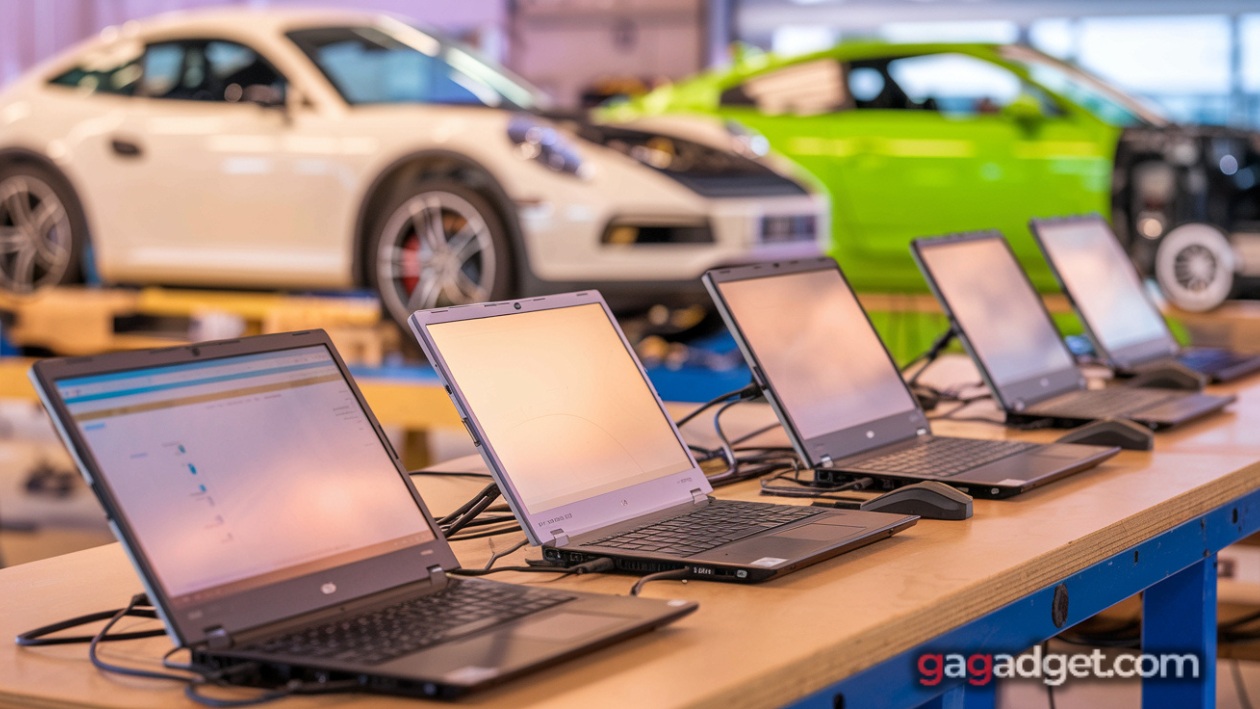
After years of experience in automotive tuning and countless conversations with fellow tuners, I've encountered many questions about choosing the right laptop. Here are the most important ones you should consider before making your decision.
Why Do I Need a Specific Laptop for Car Tuning?
A dedicated car tuner laptop isn't just a luxury - it's a necessity for reliable and efficient tuning work. Standard laptops might struggle with the demands of modern tuning software, which requires stable performance for real-time data processing and ECU communication. The right tuning laptop provides the processing power, port reliability, and stability needed for professional-grade automotive tuning.
How Much RAM Do I Really Need for Car Tuning?
For modern car tuning, I recommend a minimum of 16GB RAM, though 32GB or more is ideal for professional work. This might seem excessive, but when you're running multiple instances of tuning software, data logging tools, and diagnostic applications simultaneously, that memory gets used quickly. Having extra RAM also helps prevent system slowdowns during critical tuning operations.
Are Gaming Laptops Good for Car Tuning?
While gaming laptops often have the necessary processing power and graphics capabilities for car tuning, they're not always the ideal choice. The key advantages of gaming laptops include good cooling systems and powerful processors. However, they might lack the port durability and professional appearance needed in a workshop environment. That said, models like the Acer Predator Helios 300 can serve as excellent tuning laptops despite their gaming origins.
What Ports Are Essential for a Car Tuning Laptop?
When choosing a laptop for tuning cars, port selection is crucial. You'll need at least two USB 3.0 ports for connecting various tuning interfaces and diagnostic tools. A full-size HDMI port is useful for external displays, and having USB-C/Thunderbolt ports provides future-proofing for newer tuning hardware. Remember, port reliability is as important as port variety - cheap ports can lead to connection issues during critical tuning operations.
Should I Prioritize Processing Power or RAM?
Both are important, but in my experience, processing power should be your first priority. A powerful processor (preferably Intel Core i7 or better) ensures smooth operation of tuning software and quick calculations. RAM can often be upgraded later if needed, but you're typically stuck with the processor you choose. That said, don't skimp on either - they work together to provide the performance needed for effective car tuning.
Final Thoughts on Choosing Your Best Laptop for Car Tuning
After spending countless hours testing and using these laptops in real-world tuning scenarios, I've found that the right choice really depends on your specific needs and circumstances. Whether you're a professional tuner handling multiple cars daily or an enthusiast starting your journey into car tuning, there's a perfect laptop for your situation.
For those seeking top-tier performance and reliability, the Dell XPS 15 (2024) stands out as our Editor's Choice, offering an exceptional balance of power and functionality. The HP Spectre x360 impresses with its versatility and innovative design, making it our Best Overall pick for those who value flexibility in their tuning setup.
For professionals working in demanding environments, the Lenovo ThinkPad P1 Gen 6 offers unmatched durability and reliable performance. And if you're looking for value without compromising on essential features, the Acer Predator Helios 300 delivers impressive capabilities at a more accessible price point.
Remember, the best laptop for car tuning is one that you can rely on day in and day out. Whether you're making fine adjustments to fuel maps or performing complete ECU rewrites, your laptop is a critical tool in your tuning arsenal. Choose wisely, and it will serve as a dependable partner in your automotive tuning journey.
Related Articles:
